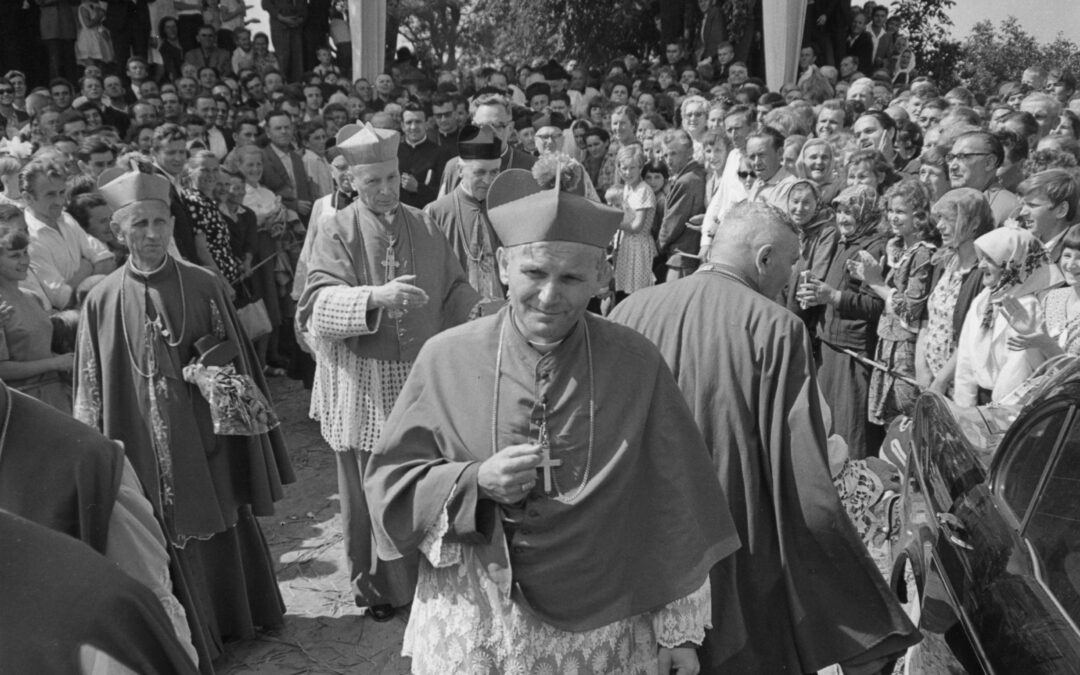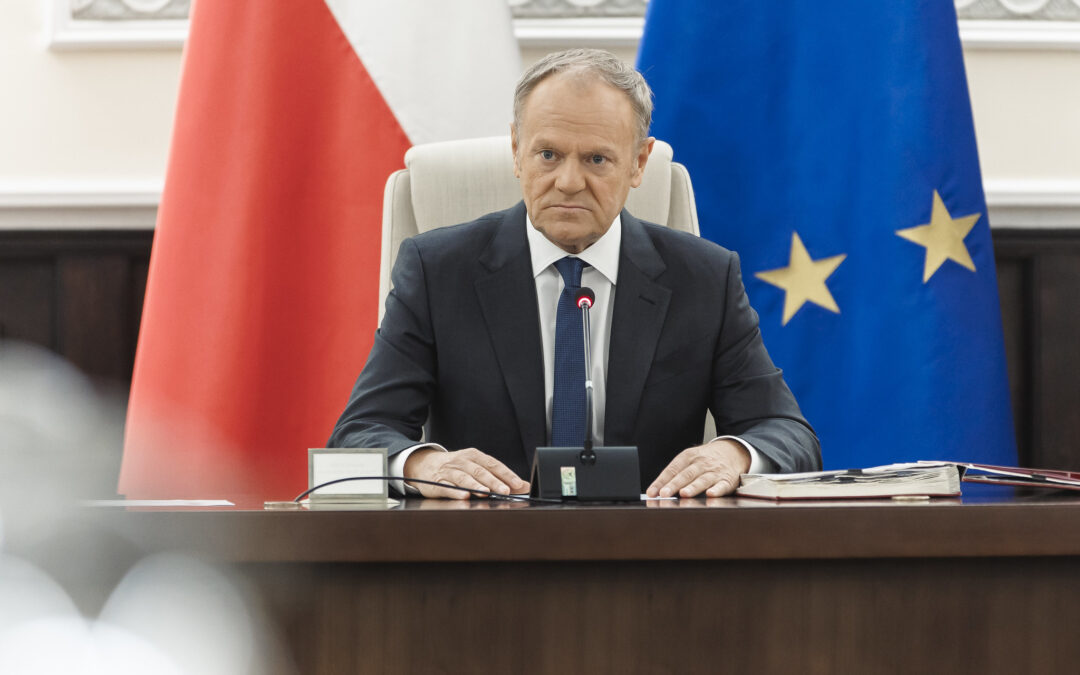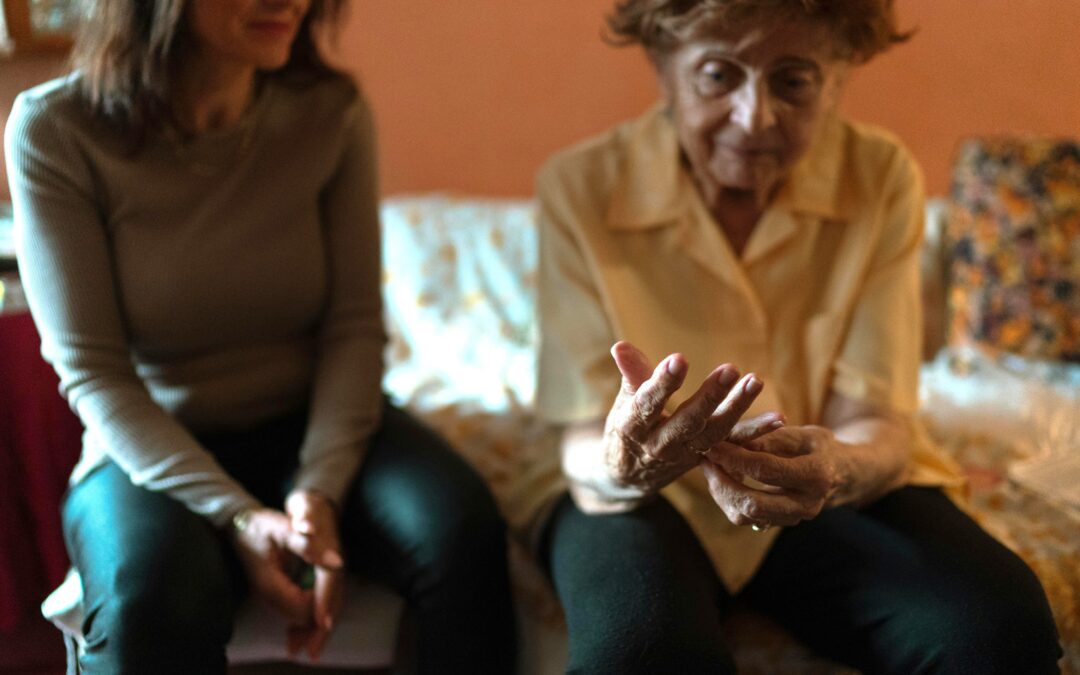The future Pope John Paul II, while still archbishop of Kraków, knew of sexual abuse by priests subordinate to him but allowed them to continue working in the church and may even have tried to prevent the authorities from learning of their crimes, a new report by Polish broadcaster TVN claims.
The revelations come amid debate in Poland over the legacy of John Paul II – a national hero not only for his spiritual leadership but also for the role he played in inspiring opposition to the communist regime – with regard to historical abuse cases in the Catholic church.
The former pope’s defenders, led by the Polish episcopate, have often argued that John Paul II was unaware of the scale of abuse being covered up in the church and that the first signs began to reach him when he was already severely ill.
Poland's bishops have defended Pope John Paul II’s record on child sex abuse.
It says “media attacks” claiming he was negligent are an “attempt to undermine his authority” because his ideas “do not correspond to contemporary ideologies promoting hedonism” https://t.co/fe1SYmqHVt
— Notes from Poland 🇵🇱 (@notesfrompoland) November 21, 2022
TVN – which has previously broadcast claims that John Paul II’s close associate and private secretary Cardinal Stanisław Dziwisz, ignored cases of sexual abuse in the Catholic church – yesterday aired a new report focused on how the former pope himself dealt with three cases of priests responsible for abuse.
Two of those cases – of Eugeniusz Surgent and Józef Loranc – have already been reported on by other journalists in recent months. But TVN’s report featured new evidence, including accounts directly from victims and witnesses.
The third case was that of Bolesław Saduś, who was responsible for overseeing religion classes for children in the archdiocese of Kraków and was a close acquaintance of the future pope, then known by his birth name of Karol Wojtyła and who served as archbishop of Kraków from 1964 to 1978.
Już nie tylko przypuszczenia – są dowody, że Jan Paweł II wiedział o pedofilii w Kościele i to zanim został papieżem.#Bielmo "Franciszkańska 3" – reportaż @MarcinGutowski dziś o 20.30! ZOBACZ już teraz w TVN24 GO: https://t.co/6hcYo9SHR5 pic.twitter.com/v5RqpQ3npK
— Czarno na białym TVN24 (@tvn24CnB) March 6, 2023
According to files from the communist-era security services, in 1972 Saduś was given verbal notice by Wojtyła that he was to be removed from his position. “There is a concern in the curia that it is impossible to hide the scandal that Saduś has caused by his behaviour,” it was reported in the files.
“It has emerged that he has morally corrupted many young boys whom he has abused for sexual matters,” they continued. “Recently, for example, Saduś has been stopped on the streets of Kraków by the mothers of these boys, who curse at him and threaten [to speak out] about his abnormal actions.”
Wojtyła, however, did not impose any punishment on Saduś. In fact, according to the files and correspondence between the future pope and the bishop of Vienna, he instead arranged for Saduś a position in a parish in Gaubitsch, Austria.
A Catholic diocese has been ordered to pay compensation to a man sexually abused as a child by a priest.
The victim was treated as an “accomplice in the sin of adultery” at a church trial that acquitted the priest, who was later convicted by a state court https://t.co/IHay5h56SG
— Notes from Poland 🇵🇱 (@notesfrompoland) October 10, 2022
In his letter to his Austrian counterpart, Wojtyła does not reveal the reason for Saduś’s departure from Kraków, nor mentions his dismissal.
He writes, instead, that “the priest wants to devote himself to academic work” regarding “developmental psychology, the impact of technical civilisation on the child’s psyche and the emergence of religious concepts”.
TVN also presented an interview filmed undercover with a former employee of the Kraków diocese, now almost 100 years old, who confirmed that Saduś had “sexual deviances” concerning boys and therefore had to leave.
When asked by the journalist “who transferred Saduś”, the former employee of the diocese – not named and shown with a concealed face – said, “Well, Cardinal Wojtyła”.
Poland's Catholic church has revealed that almost as many reports of child sex abuse by clergy were filed in 2018-20 as over the previous 28 years combined
The episcopate admits there are also "certainly many hidden cases", and has "asked for forgiveness" https://t.co/1L7p6tztMi
— Notes from Poland 🇵🇱 (@notesfrompoland) June 28, 2021
The second case mentioned is that of priest Eugeniusz Surgent, a convicted paedophile priest whose story was also reported in November by the newspaper Rzeczpospolita.
TVN interviewed around a dozen of Surgent’s victims in one of the villages the priest worked in – Sól Kiczora, about 120 km southwest of Krakow – who spoke on condition of anonymity.
The station also presented an interview with a witness – also not named – who went to report Sugent’s deeds to the Kraków diocese in 1973. Wojtyła attended the meeting with the witness, inquiring to see “if it was a bluff”.
The witness told TVN he had been informed by a senior diocese official that Surgent “had done the same thing in all other parishes”. The witness also claims that “Bishop Wojtyła asked [me] not to report it anywhere, that he would take care of it…So that the authorities would not find out about it”.
The Catholic church in Poland has offered support to victims of a now-deceased priest who was convicted of child sex abuse in the 1970s but, according to a new report, continued to abuse children while working in the church after his release from prison https://t.co/0GqbcSVHat
— Notes from Poland 🇵🇱 (@notesfrompoland) November 30, 2022
However, Surgent’s case did come to the attention of the authorities, and he was subsequently sentenced to prison. After serving his sentence, he remained in the priesthood and had contact with children – including teaching Catholic catechism classes – notes Rzeczpospolita, which found that he went on to abuse more victims.
The third case described by TVN was of priest Józef Loranc, whom Dutch journalist Ekke Overbeek has already written about in a new book, Maxima culpa. Loranc abused a number of girls in the village of Mutne in 1969 and 1970 while teaching Catholic catechism classes.
In this case, Wojtyła ordered Loranc to be immediately suspended from duties. The priest was then tried and imprisoned. However, after his release, Wojtyła informed Loranc that he would “gradually return to priestly work”, though was banned from teaching catechism to children and youths.
The future Pope John Paul II allowed a priest to return to priestly duties after he had served a prison sentence for self-confessed multiple cases of sexually abusing 10- and 11-year-old girls, according to archival documents and interviews https://t.co/5DdNr64aqG
— Notes from Poland 🇵🇱 (@notesfrompoland) February 22, 2023
TVN’s broadcast, as well as other recent reports, have led to calls for a re-evaluation of John Paul II’s legacy, even from some figures associated with the church.
Tadeusz Isakowicz-Zaleski, a Catholic priest in Kraków, told Wirtualna Polska that it was shocking that it had taken 50 years for these cases to come to public attention, with “the victims left to fend for themselves” in the meantime.
Isakowicz-Zaleski, who has long pushed for the church to be more honest about historical abuse, says that “everyone knew” about the issue within the church but “hoped that people would forget about it”.
“No one can [now] say that John Paul II did not know about paedophiles among priests,” tweeted journalist Karolina Opolska. “Not only did he know, he hid [them], transferred [them] to other parishes, sent [them] to work with children!”
Po dzisiejszym odcinku Bielma @MarcinGutowski już nikt nie będzie mógł powiedzieć, że Jan Paweł II nie wiedział o pedofili wśród księży. Nie dość, że wiedział, to ukrywał, przenosił do innych parafii, kierował do pracy z dziećmi!!
Pomnik upada. To proces nieodwracalny
— Karolina Opolska (@Opolska) March 6, 2023
However, some conservative figures condemned TVN’s report and also noted that much of the evidence it cited comes from documents created by the communist authorities, who were hostile to the church.
Marzena Paczuska, a member of the National Broadcasting Council, called the TVN report “a disgraceful attack” that had “crossed the boundaries”.
Meanwhile, Prime Minister Mateusz Morawiecki, part of the ruling national-conservative Law and Justice (PiS) party, last night changed the background images on Facebook and Twitter to a photograph of John Paul II with a famous quote from the former pope: “Do not be afraid.”
Main image credit: NAC

Alicja Ptak is deputy editor-in-chief of Notes from Poland and a multimedia journalist. She has written for Clean Energy Wire and The Times, and she hosts her own podcast, The Warsaw Wire, on Poland’s economy and energy sector. She previously worked for Reuters.




















